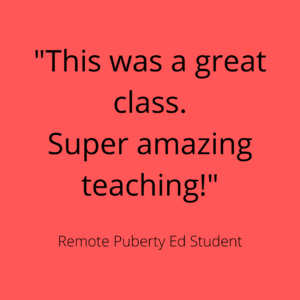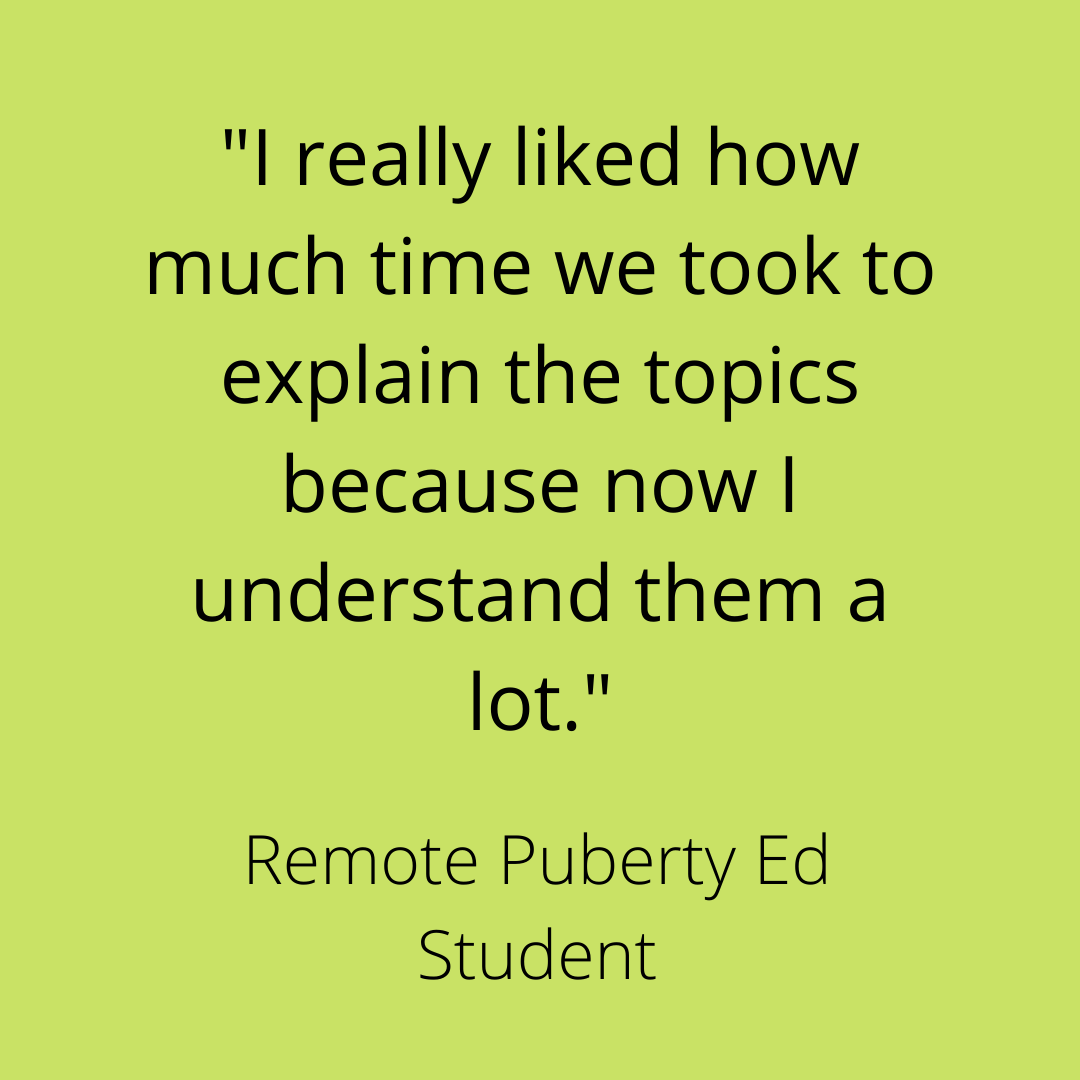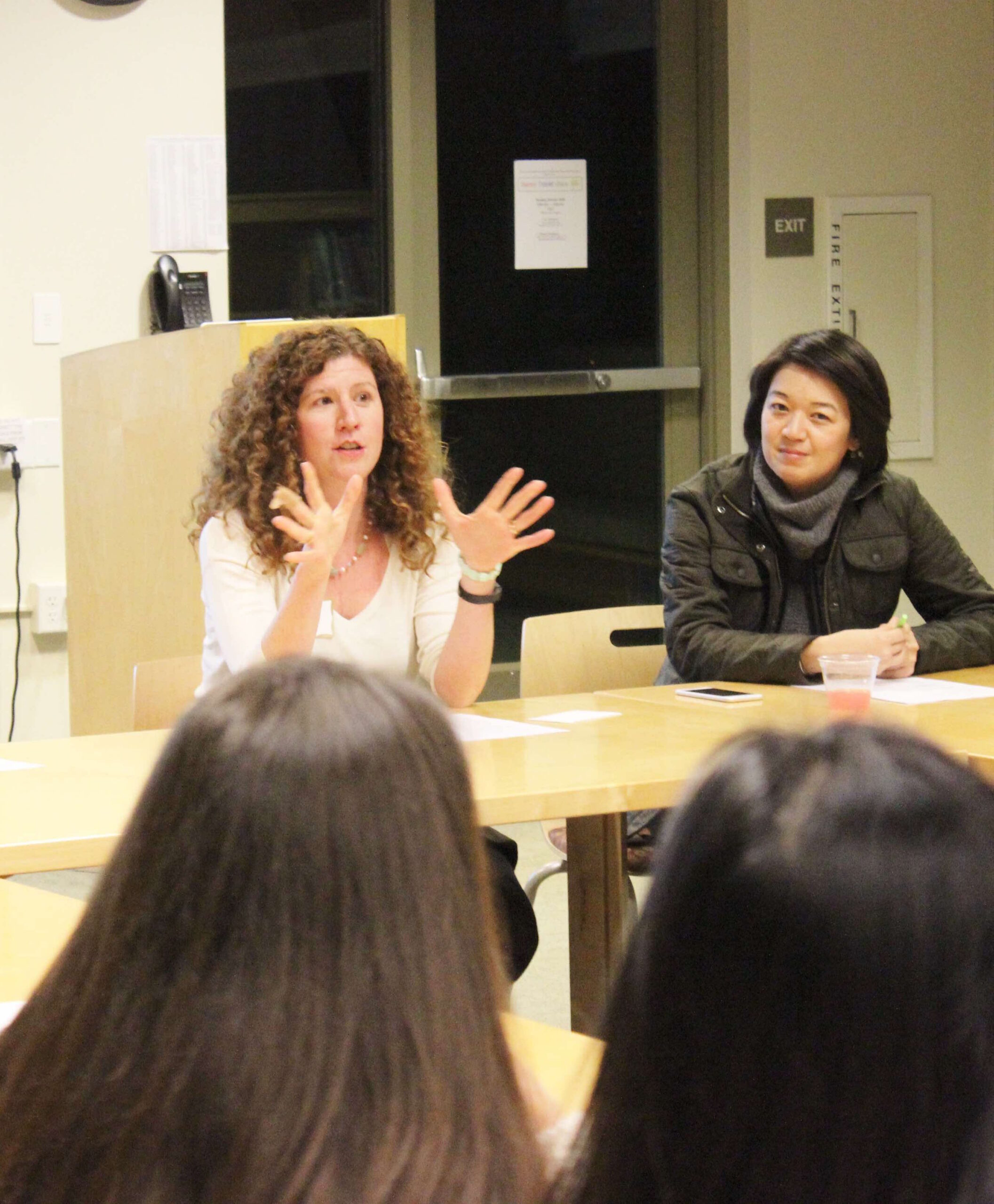Remote Puberty Education
A course for kids grades 4-6 about the joys and challenges of puberty and the skills they need to navigate it

Accurate, compassionate, relevant and joyful remote puberty education
In this matter-of-fact, fact-based, reassuring course, we will discuss the emotional, physical, and intellectual changes that come with puberty. We’ll learn about how everyone is different, how to manage new bodies, and why going through puberty is an amazing and exciting time. It’s perfect for upper elementary-age kids who will soon be facing these issues head-on.
These small-group interactive classes give students a chance to ask a reliable adult questions about puberty, sexuality and growing up
Students will walk away from class more knowledgeable, empowered, and reassured that they are normal—even if their experience is different from their friends’. They’ll also learn practical strategies for managing the awkward and uncomfortable aspects of puberty like zits, cramps, and growth spurts.


Support for Parents too!
Many parents didn’t receive good puberty education themselves and want to do better for their kids, but just don’t know where to begin. The week your child meets me for class, I will offer an informative, comforting, practical session on talking (and talking, and talking) with your child about the changes of puberty and growing up. Parents will have the opportunity to meet me, preview topics being covered in puberty education, and ask questions. This is a great chance to learn practical strategies for how to be an “askable” parent.
What we cover
Puberty: it happens to everybody, but it is a little different for everyone
- Physical, social, and emotional changes that occur during puberty
- Basic Anatomy: structure, function, and major elements of the human reproductive system, including erections and periods
- Conception and other ways humans make families
- Self-care: hygiene, cramp management, sleep, nutrition and acne
- What to expect and how to prepare
- What is "normal"
- Empathy for the experiences of other genders
- Safe sources for more information about sexuality and puberty
- Anonymous Questions and Answers


The Teaching Team
Kate Bedford, MPH, has taught puberty education and human sexuality to adolescents and their parents for the past fourteen years at schools throughout the San Francisco Bay Area, including The Nueva School, Menlo Shool, Presidio Hill, La Scuola, Brandeis SF, Berkwood Hedge, Guidepost and The Marin School.
She previously worked at Health Promotion Services at Stanford University, the San Francisco Department of Public Health HIV Prevention Section, Magnet, a gay men's health center, and at the Bixby Center at UC Berkeley researching family planning and maternal health globally. She earned her BA from Stanford and her Master of Public Health from UC Berkeley.
She firmly believes puberty does not have to be traumatic, surprising, or painful. She concedes, however, that zits stink.
Teaching Assistants
I am thrilled to announce that two of my most thoughtful and lovely longtime students have agreed to be my teaching assistants. This means students will not only have an adult expert (that’s me) to learn from, they will also have a fantastic role model just a few years older in class as well.
Amalia Kamon, a freshman at Carnegie Mellon University, was a student of Kate’s from middle school through high school. She believes that all kids are entitled to biologically accurate, emotionally healthy, and actively engaging education about their own bodies. She hopes this online effort will provide the knowledge and support that adolescents need during this time of change.
Grace Holmes is a college freshman at Wellesley College and has been taking classes from Kate since 6th grade. She believes that accessible, inclusive, accurate puberty and sex education are absolutely crucial and that sexuality, relationships, and puberty don't have to be intimidating, scary, or surprising—to navigate or to discuss.
Join our remote puberty ed mailing list
If you can't join us this time around, maybe next time.